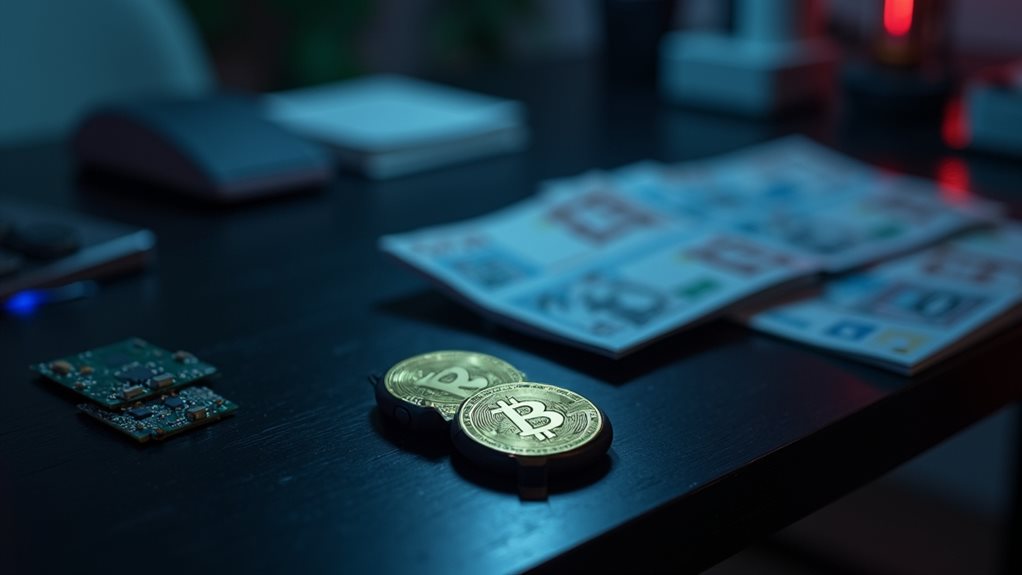Russia’s got itself a Bitcoin problem. After seizing 1,032.1 BTC (worth $90 million) from a corrupt investigator, officials are scrambling to convert it into state revenue. One tiny snag: Bitcoin isn’t even legal currency there. The Federal Bailiff Service is scratching its head over the logistics, while the Ministry of Finance pushes for a quick sale. It’s a classic case of government meets crypto – awkward, messy, and full of surprises. The story’s complexities run deeper than Moscow’s winter.

Russia has its eyes on a massive Bitcoin prize – and it’s not playing around. The government just seized 1,032.1 BTC from corrupt investigator Marat Tambiev, worth about $90 million today. That’s quite a haul for a country that technically doesn’t even recognize Bitcoin as legal currency.
Here’s where things get messy. The court ordered these digital coins to be “converted into the income of Russia.” Sounds simple enough, right? Wrong. The Federal Bailiff Service is scratching its head trying to figure out exactly how to transform magic internet money into real government revenue. It’s like trying to explain TikTok to your grandparents – complicated and slightly frustrating.
Converting seized Bitcoin to state revenue has Russia’s bureaucrats puzzled – like teaching blockchain basics to a cat.
The legal framework is about as solid as a chocolate teapot. Sure, Russia can seize digital assets, but what happens next is anyone’s guess. The Federal Bailiff Service is collaborating with several institutions to develop effective cryptocurrency handling methods. The legislative body must now urgently establish clearer legal guidelines for managing seized crypto assets. Hardware wallets are recommended for securing seized assets until proper protocols are established. There’s a bill floating around to recognize Bitcoin as property in criminal cases, but for now, it’s all rather fuzzy. The government’s basically making it up as they go along.
Meanwhile, the Ministry of Finance is keenly waiting to get its hands on these coins. The plan? Sell them off and fill up the treasury. But timing is everything – cryptocurrency prices swing more wildly than a pendulum in an earthquake. Today’s $90 million could be tomorrow’s pocket change, or vice versa.
Russia’s approach differs sharply from other countries like the United States, which tends to hodl onto seized crypto. The Russians want cash, and they want it now. It’s a bold strategy, especially considering the Central Bank’s notorious crypto skepticism. Some officials are pushing for regulation rather than outright prohibition, but getting everyone on the same page seems about as likely as finding a unicorn in Red Square.
The whole situation highlights a global challenge: governments everywhere are trying to figure out what to do with seized cryptocurrency. For Russia, it’s simple – turn it into cold, hard cash. Whether they can pull it off smoothly is another story entirely.









